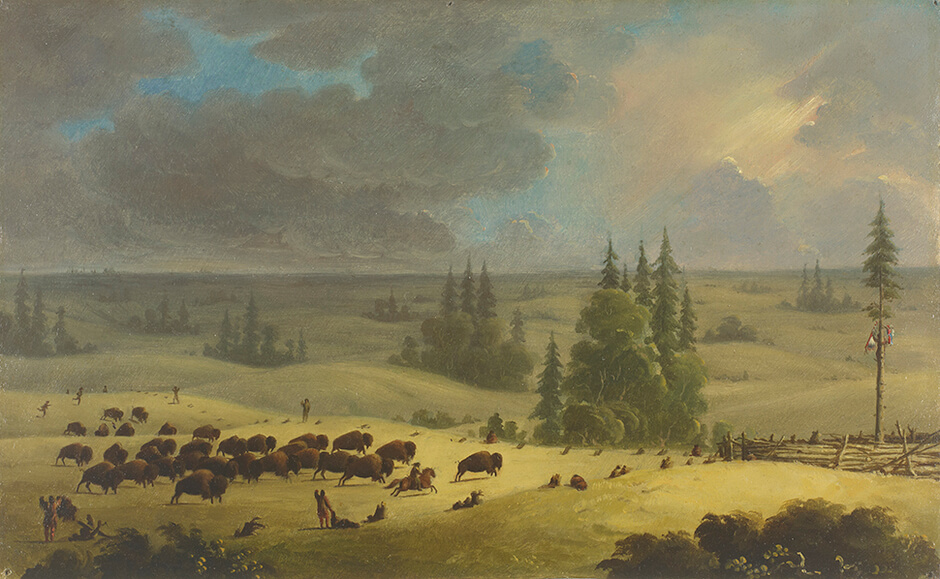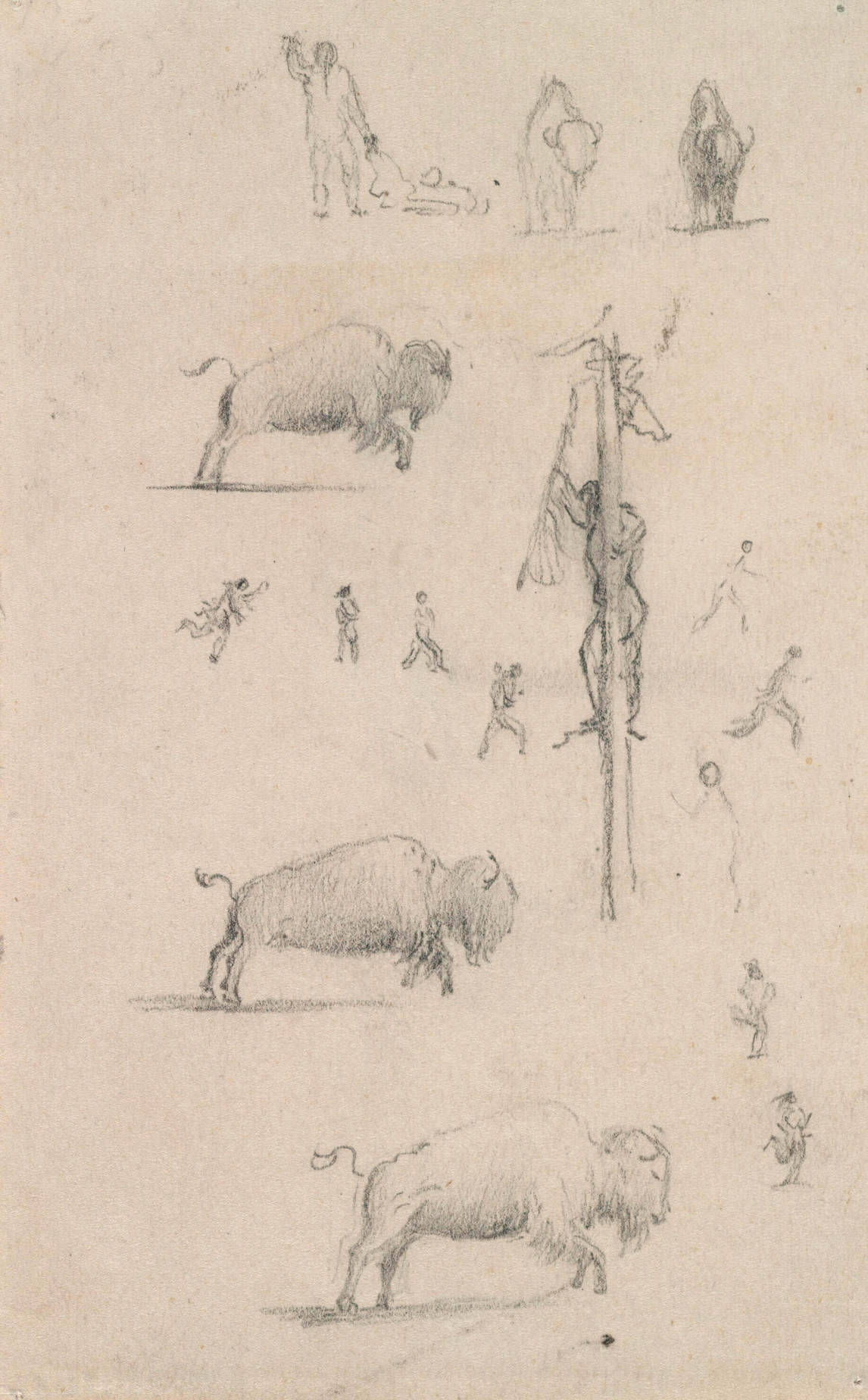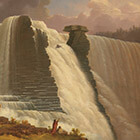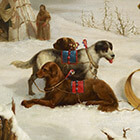The Buffalo Pound c. 1846–49

Paul Kane, The Buffalo Pound, c. 1846–49
Oil on paperboard, 21.9 x 35 cm
Art Gallery of Ontario, Toronto

The Buffalo Pound speaks as much to issues of patronage as it does to Kane’s approach to a subject that was of great interest to him. Kane was enthralled with plains bison, and he would execute a number of paintings based on the theme.
This particular painting, which depicts bison being directed into a corral for slaughter, was one of fourteen produced for Sir George Simpson, governor of the Hudson’s Bay Company (HBC), who authorized and aided Kane’s travel through HBC territory. Simpson intended to display the paintings in a room he was designing as a “museum of Indian curiosities” and seems to have had a vested interest in the images Kane produced for him. Simpson was not shy about directing the artist on subject matter, advising him that the bison should be depicted in profile so as to “give a better idea of the appearance of the animals.” Kane obliged, but the side view from a distant, elevated vantage point also allowed the artist to better distill the essential elements of the event into a pictorial narrative: the stampeding herd is funnelled by Aboriginal men (on horseback and foot) along a narrowing lane into a corral in which another man, perched in a tree, “chants an invocation for the success of the undertaking.”
Curiously, Kane’s field journal mentions nothing of his witnessing the actual hunt, just the pound containing the aftermath of a previous slaughter. The artist may well have relied on oral accounts of the event. Kane’s painting is a composite based on several sketches—of bison, figures, landscape—and a detailed pencil drawing that corresponds closely to this particular version.

 About the Author
About the Author
 More Online Art Books
More Online Art Books
 Acknowledgements
Acknowledgements